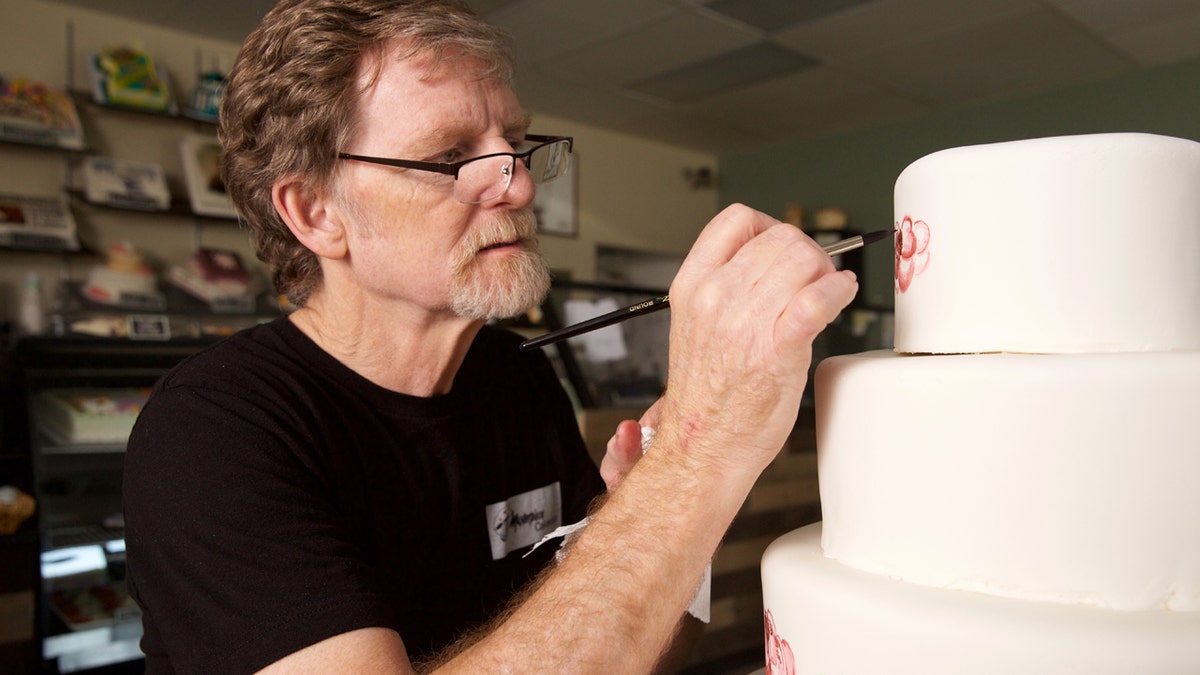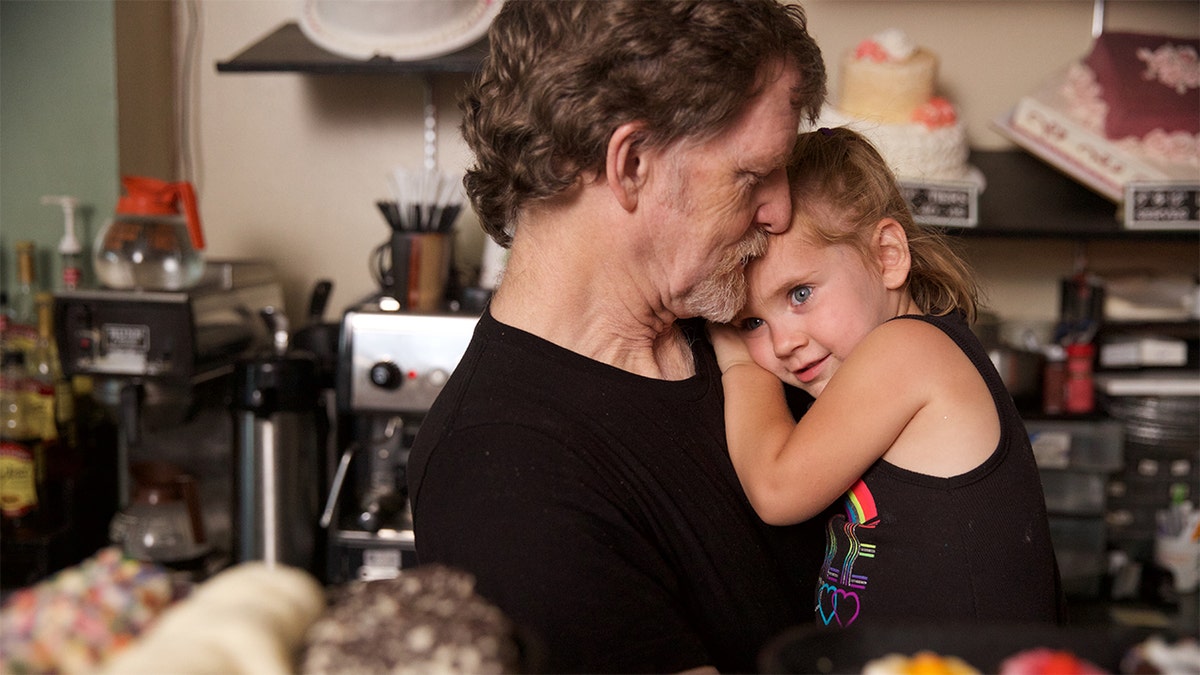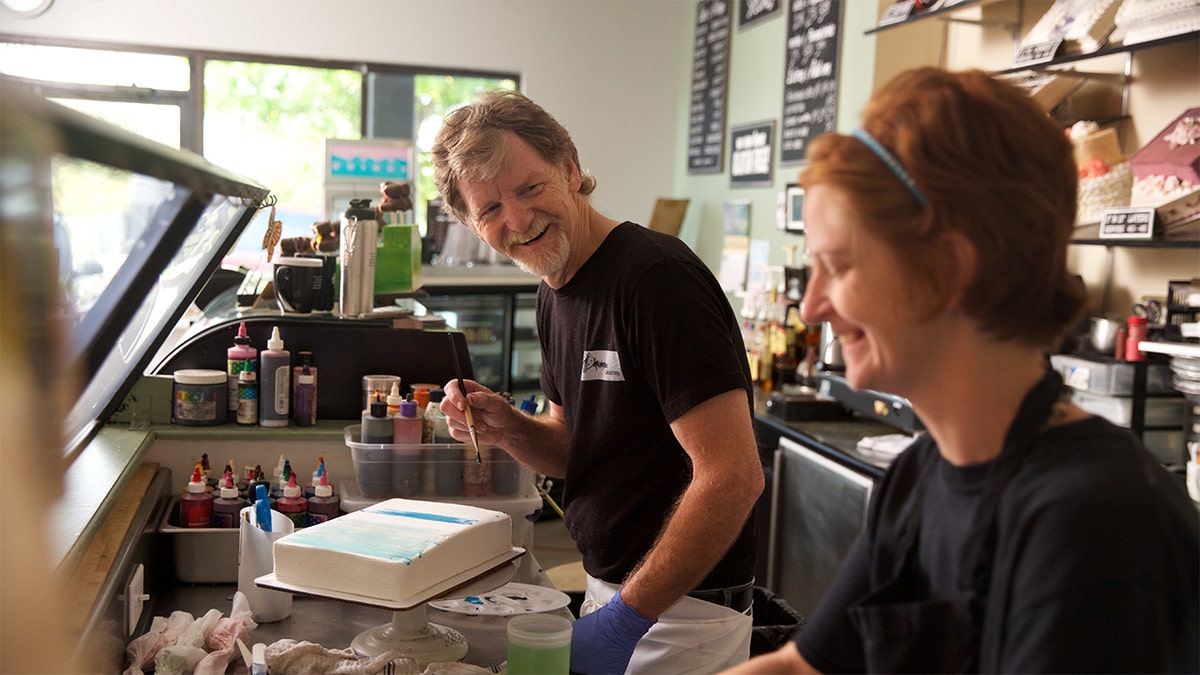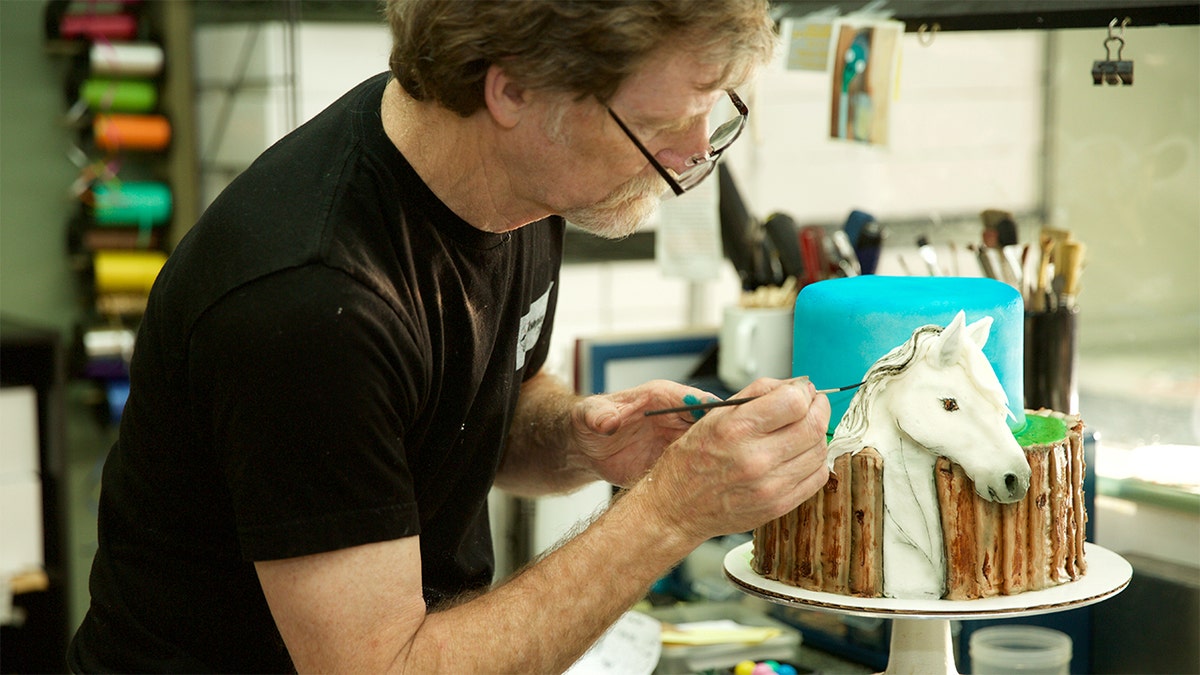
Baker Jack Phillips (Alliance Defending Freedom)
The Supreme Court will hear oral arguments Tuesday in a landmark case that could determine if the First Amendment to the Constitution will continue to protect the freedom of artists who wish to act in a manner consistent with their sincerely held beliefs.
The case before our nation’s highest court is called Masterpiece Cakeshop v. Colorado Civil Rights Commission. The organization that I lead, Alliance Defending Freedom, is representing the cake shop and its owner, cake artist Jack Phillips.

Baker Jack Phillips (Alliance Defending Freedom)
Phillips said he couldn’t design a custom wedding cake for two men who requested it. He declined because using his artistic talents to celebrate a same-sex marriage would violate his Christian faith and his artistic freedom.
The two men then filed a lawsuit against him. But contrary to what they allege, Phillips didn’t discriminate against them. While he can’t create cakes that celebrate what his faith prohibits, he offered to sell the men anything else in his shop or to design a cake for them for another occasion. He serves all people, but can’t express all messages or celebrate all events.
As our nation struggles through deep divisions, we should strive not to use the law as a cudgel against those holding views about marriage that the Supreme Court recently described as “decent and honorable.”
However convinced one may be of the goodness of redefining the meaning of marriage to no longer be only a union between one man and one woman, the First Amendment remains a legal shield for those who aren’t convinced.

Baker Jack Phillips (Alliance Defending Freedom)
The Supreme Court has repeatedly affirmed that at “the heart of the First Amendment lies the principle that each person should decide for himself or herself the ideas and beliefs deserving of expression, consideration, and adherence.” It is not hyperbole to say, as the high court has, that the American “political system and cultural life rest upon this ideal.”
Since the dawn of the republic, our constitutional order has honored individual freedom of mind and accorded citizens the corresponding liberty to speak and refrain from speaking as their conscience directs. Yet this formerly prized feature of our legal system devoted to individual freedom now faces growing opposition.
Once upon a time, the American Civil Liberties Union cherished a reputation as a champion of the First Amendment, a stalwart defender of free expression rights for dissenting voices. Now it serves as the enforcement arm of the ascendant orthodoxy, prosecuting those who dissent.

Baker Jack Phillips (Alliance Defending Freedom)
In its written brief filed in the Masterpiece Cakeshop case, the ACLU denies that the First Amendment offers any refuge to Phillips.
Coercing an artist to custom-design a work of art that celebrates an idea he staunchly disbelieves surely triggers First Amendment protections against compelled expression. But the ACLU insists otherwise. It says that denying Phillips’ artistic freedom is merely “a routine application of a standard public accommodation law.”
Phillips’ decision not to convey a message he disbelieves, to hear the ACLU tell it, is akin to a misogynist hardware store owner refusing to sell hammers or grass seed to women.
But what of the obvious message and expressiveness in the wedding cake itself? The ACLU offers not a word to dispute the exquisite artistry employed in Phillips’ custom designs, nor the expressive symbolism and ceremonial significance of the iconic cake, or the inherently religious celebration in which it plays its central role.
The ACLU merely insists that Phillips’ conscientious denial is but a refusal to transact a “sale” due to a customer’s “status.” Never mind that Phillips will sell anyone anything in his store or that, during their brief 20-second discussion, he offered to create other cakes for the gentlemen who are suing him.
When discussing its clients’ interests, the ACLU decries not their lack of access to custom wedding cakes, but their receiving from Phillips of an unwelcome message of disapproval. In other words, the ACLU doesn’t really deny the profoundly personal and communicative stakes in play. It just doesn’t like the message, so it strives to eliminate such a form of dissent.
As our nation struggles through deep divisions, we should strive not to use the law as a cudgel against those holding views about marriage that the Supreme Court recently described as “decent and honorable.”
Ideally, in a society marked by pluralism on profound issues like the meaning of marriage, a rule of liberty, rather than of strong-arming dissenters to violate their convictions, should prevail.
Carving out space for dissenters is what our country is all about. The ACLU used to cherish that. But in Phillips’ case, it has seemingly placed its preferred policy over that principle.
Jack Phillips seeks merely to live his life and operate his business consistently with the values that he holds dear. That basic liberty is his. It belongs to him as a dissenter from the prevailing views on marriage, just as it belongs to those in the majority.
If the Supreme Court recognizes that in its decision – if it affirms that Phillips is part of our community and that he has a rightful place in the public square – we as a society will move toward a more tolerant position on the deeply divisive moral issue over the meaning of marriage.
Even the ACLU should see the value in more tolerance and less division in today’s America.
